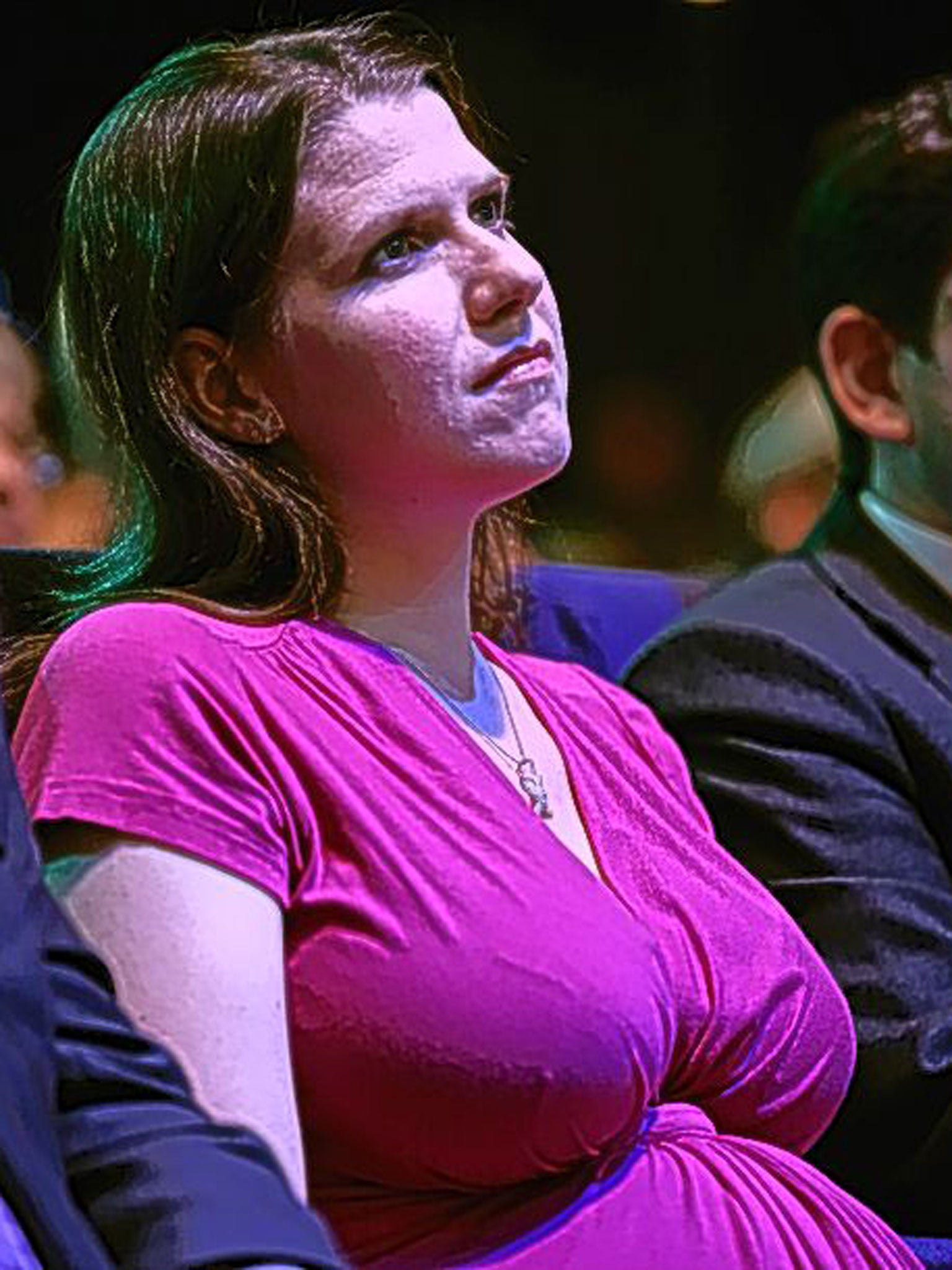Babies and the House of Commons: an impossible juggling act and a bad model for the country
David Cameron wants to make Britain family friendly but Westminster is a notoriously bad place to be a parent – as MP Jo Swinson revealed this week. Sarah Morrison reports

It was not so long ago that David Cameron said he wanted to make Britain the most "family friendly" country in Europe. He promised "thoughtful, sensible, practical and modern" support to help the nation's families.
But what about those in Westminster? Liberal Democrat MP Jo Swinson, who gave birth to a boy just before Christmas, said the House of Commons can make it institutionally difficult for Members of Parliament to juggle babies with politics.
Swinson criticised the fact that MPs do not automatically get maternity leave – they are classified as self-employed and have to negotiate leave with party whips – and criticised the "bizarre" ban on walking into the House of Commons voting lobby while holding a baby. "I hardly think it would be too much of a disruption," she said. You can take a sword through there but you can't a baby."
She is not the only parent calling for progress. Green Party MP Caroline Lucas, who has two children, told The Independent that rather than being a "beacon of best practice" Parliament is an "institution stuck in a past century". A mother is not allowed to breastfeed in the voting chamber, take a child in, or be entitled to automatic maternity cover. There is no crèche on site [there is a nursery] and working hours – though improved – are still deemed unsociable. On Mondays, the House sits until 10.30pm and on Tuesdays and Wednesdays until 7.30pm.
Sarah Wollaston, a Conservative MP who has three children, said the hours required put off a lot of young women from standing for Parliament. "My children were teenagers when I entered Parliament, but I missed the last few years of [their] time at home," she says. "My husband took on pretty much all of the parenting responsibilities. One of the biggest problems about getting more women in Parliament is getting them to apply in the first place." Wollaston, who entered Parliament at 49, would like to see the piloting of schemes such as job-sharing, which she says could encourage more young women to apply. But she says resistance to change in Westminster runs high. "They are patting me on the head and telling me it can't be done," she says. "You come up against an absolute brick wall."
Jenny Willott, the Liberal Democrat MP for Cardiff Central, says spending time both in London and a constituency can put even more pressure on the parent. "There is certainly more that could and should be done to make the workings of Parliament fit better with modern family life," Willcott says.
And clearly, inflexible working hours affects fathers, too. Tom Harris, who resigned from Labour's front bench earlier this year, says that it was "incredibly difficult" juggling his ministerial job with raising his two young children.
"[My wife] was basically a single mother for most of the week, because I found it difficult to get back to Glasgow; it placed a huge pressure on the family," he says.
Still, he adds that he does not want to campaign for change. "It's never going to be an easy job to do as a family person, or a parent of any description."
But Justine Roberts, the chief executive of Mumsnet, says that we must "challenge this idea that Parliament is no place for a parent with young kids".
"If we want legislation that reflects the needs of families we need to allow MPs to live as families," she says. "Our 2011 survey showed that 91 per cent of MPs would not describe their job as family friendly."
Charlie Woodworth, of the Fawcett Society, is more damning in her verdict: "It's 2014 but men outnumber women four to one in the Commons. Parliament urgently needs to get up to date and join the 21st century." She also thinks that political parties should draw up and publish formal policies on maternity and paternity leave for their MPs.
Other European countries show that it can be done. Denmark does not allow voting after 7pm on sitting days; in Sweden, votes are not usually held on Mondays or Fridays, so members can spend more time in their districts; and Switzerland's parliament adopted a proposal to align sittings with school holidays.
Still, there's a long way to go in Europe, too, as proved by Italian MEP Licia Ronzulli who has made the headlines more than once by taking her daughter with her to vote at the European Parliament. That's right, a working mother taking her child to work makes the news, even when she's taking her to a place where children are allowed.
Time to put those thoughtful, sensible, practical and modern plans into practice.
Join our commenting forum
Join thought-provoking conversations, follow other Independent readers and see their replies
Comments